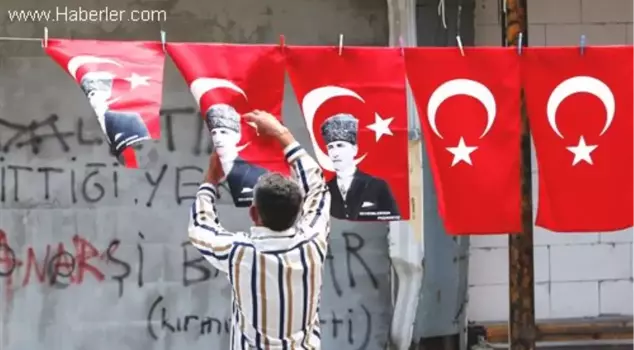
06.06.2013 16:40
Calls for the resignation of Turkish Prime Minister Erdogan are growing louder as the violent clashes between police and demonstrators escalate.
Calls for the resignation of Turkish Prime Minister Erdogan are growing louder as the violent clashes between police and demonstrators escalate. Yet Kurds would like him to say.
The unrest in Turkey has continued for nearly a week. But it's no longer about saving trees in an Istanbul city park; it's about basic democratic abuses in the country.
Most demonstrators are demanding Prime Minister Recep Tayyip Erdogan's resignation. The government leader has been in office for a decade. His conservative, Islamic party AKP won national elections twice in a row and with a clear margin. For years, Erdogan enjoyed strong support, and the country appeared to be doing well. Because of its flourishing economic development, Turkey was viewed internationally as a model pupil.
Wave of unrest
The wave of unrest currently rolling over the country has reached a height that Erdogan has yet to experience. And that should come as no surprise, according to the Turkish journalist and writer Cengiz Aktar. "The government gives the impression that it has everything under control and that everything is just fine – but it's really just the opposite," Aktar told DW.
The protestors' slogans clearly indicate that the problem is Erdogan, not his party or the government, according to Aktar. "He intervenes in people's private lives," he said. "For instance, the ban on lipstick for flight attendants or a 10: 00 p.m. ban on alcohol. All of this is completely contrary to the lifestyle of secular Turks."
The regulations and laws were initially ignored, "but when people noticed them being implemented, they began to grasp the implications," he said.
The main reasons for the unrest in Turkey were Erdogan's attempt to reorganize social structures and his authoritarian style of governing, according to Aktar. What sparked the unrest, he added, was the simple felling of trees in Gezi Park.
Excessive force
For Gencer Özcan, director of the political science faculty at Bilgi University in Istanbul, the unrest began on May 1, Labor Day. "The government banned the May Day demonstration in Taksim Square, which is of symbolic importance to the left-wing political movement," Özcan told DW. "The government stopped all public transportation in the city. And even then, the police used excessive force against the demonstrators."
The protests have continued over the past few days. Erdogan has called the protestors "looters" who are being led by extremist groups.
Journalist Aktar disagrees. "It is a young, impartial and urban movement without a political agenda and without a leader," he said. Although the traditional left-wing groups are participating, they are not the driving force, he added, referring to the numerous socialist, communist and Kurdish flags that protestors have been waving for days. "No political movement or party would be capable of manipulating people at Taksim Square or in Gezi Park," he said.
Diversified demonstration
Özcan also views the citizen gatherings as a "highly diversified demonstration." All types of groups are participating in the protests, even radical ones, he notes. "But the backbone is formed by young people who have taken to the streets to protect their rights," he said. "Teenagers, school children and university students form the core of these demonstrations."
The opposition parties have been wary of participating in the protests, according to Özcan. "From the beginning, the Kurdish party BDP officially avoided participation because it felt that any involvement could disrupt peace in general and the Kurdish peace process in particular," he said. "Supporters of the nationalist party MHP were also told by party leaders not to participate in demonstrations." The position of the republican people's party, Turkey's largest opposition party, CHP, has maintained a similar position; members who have chosen to demonstrate have done so as private individuals.
The slogans and the graffiti on the walls, bus stops and streets in many Turkish cities reflect the general discontent. "Tayyip istifa!" (Tayyip resign!) is written all over the place and is being chanted out loud for days. Yet not everyone wants a new prime minister. The Kurds are especially concerned.
Participatory democracy
"It's not good for us Kurds if Erdogan resigns," said BDP member Erhan Calahan, who has joined the protests. "Our government is in the midst of a peace process. If it changes now, the country could face some turbulent times."
Aktar believes the Turkish government needs to understand that democracy isn't a fold-out box that can be closed whenever anyone wants to. "Democracy lives, functions and expresses itself," Aktar said. "That's what we call participatory democracy." That's also something that many politicians have apparently not yet learned but he hopes they someday will.